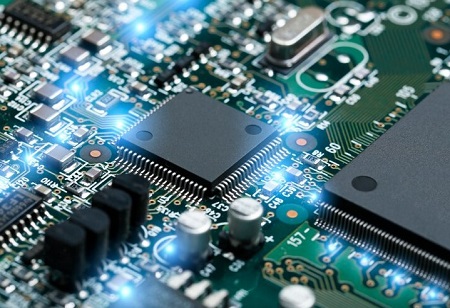IIT Madras and ISRO Partner to Develop Advanced Semiconductor Chip
 The Indian Institute of Technology Madras (IIT Madras) has partnered with the country's space agency ISRO to develop a semiconductor chip for multiple applications, emphasizing the commitment to indigenisation in cutting-edge technology.
The Indian Institute of Technology Madras (IIT Madras) has partnered with the country's space agency ISRO to develop a semiconductor chip for multiple applications, emphasizing the commitment to indigenisation in cutting-edge technology.
IIT Madras collaborated with the Inertial Systems Unit of the Indian Space Research Organisation (ISRO) located in Thiruvananthapuram on the chip that was produced in a semiconductor lab in Chandigarh.
The Indigenous RISCV Controller for Space Applications (IRIS) chip was created using a Shakti processor baseline. It can be applied in various fields, ranging from the Internet of Things to computing systems for strategic purposes. The chip is a component of initiatives to localize semiconductors that Isro employs for its applications, command and control systems, and various essential functions.
The Inertial Systems Unit (IISU) of ISRO in Thiruvananthapuram partnered with IIT Madras to establish the chip's specifications and create its design. The configuration was reached by considering the shared functional and computing needs of current sensors and systems utilized in ISRO missions. Fault-tolerant internal memories were connected to the SHAKTI core, improving the reliability of the system.
Measures for expanding to future ISRO missions were implemented. The final design went through both software and hardware testing, aiming for a product with high reliability and high performance.
The motherboard of the chip was produced by PCB Power in Gujarat; it was put together and installed by Syrma SGS in Chennai, and the software was created by IIT Madras.

